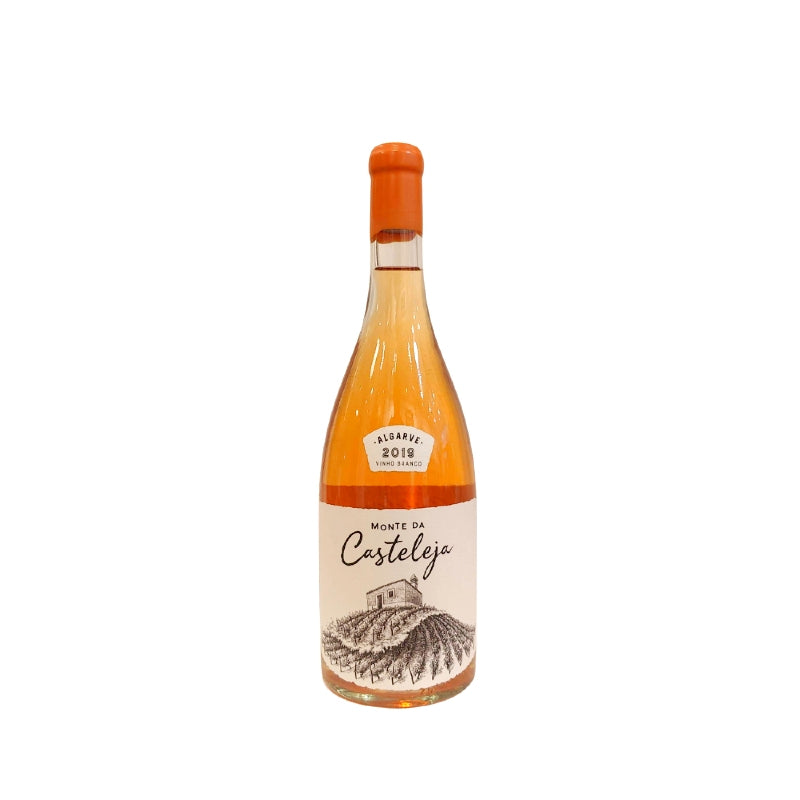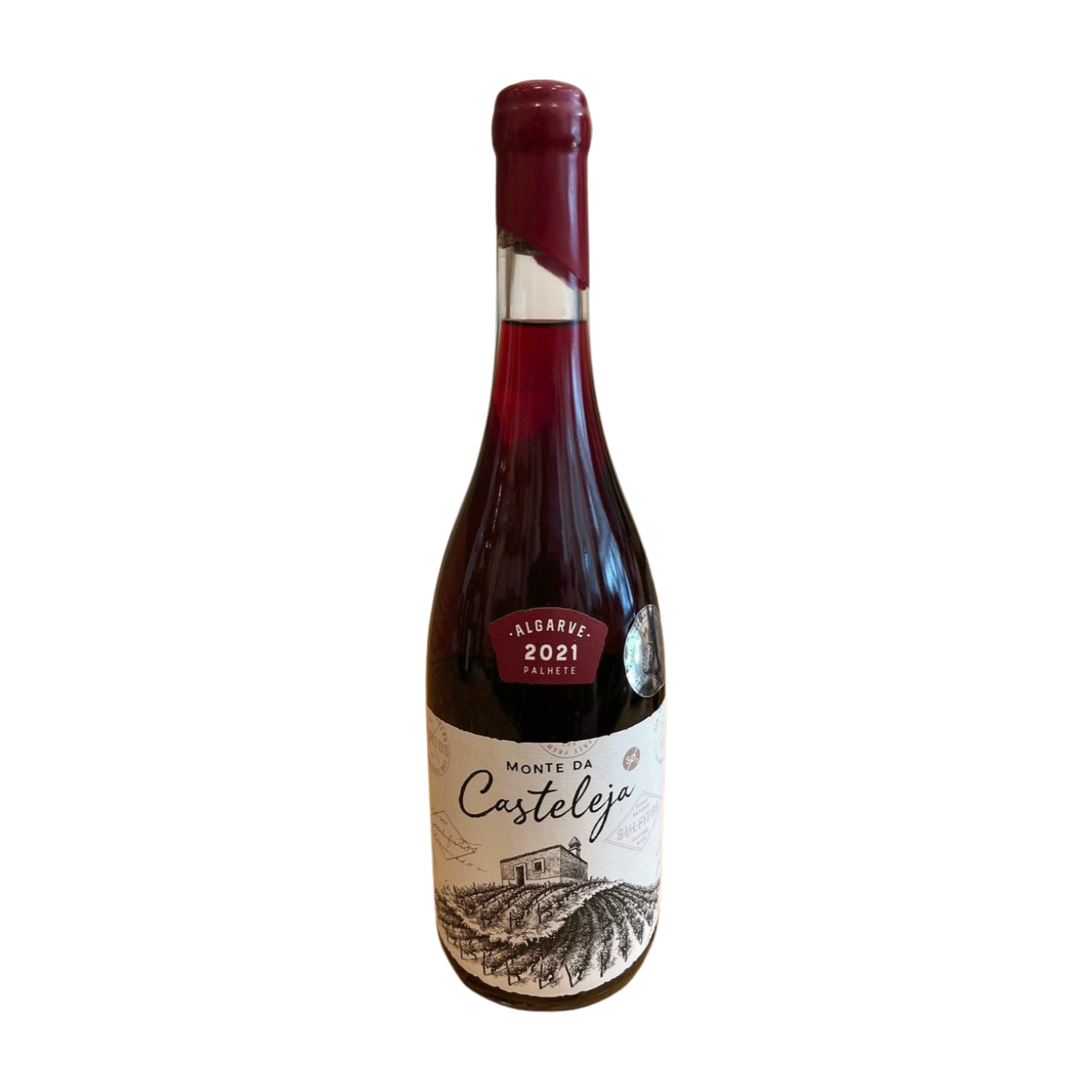Monte da Casteleja
Monte da Casteleja, nestled in the Lagos region of Portugal's Algarve, is a testament to the exciting blend of tradition and modern innovation in Portuguese winemaking. While the exact date of its establishment isn't readily available, its focus on organic viticulture and handcrafted wines has quickly earned it a reputation for quality.
Monte da Casteleja's story begins with French-born Guillaume Abel Luís Leroux, who inherited the long-abandoned property from his Portuguese grandfather. Recognizing the potential of the land, Guillaume embarked on a project to revitalize it, focusing on organic wine production.
The name "Casteleja" itself reflects the historical significance of the land. Archaeologists discovered the ruins of a small Roman castle lie within the property. "Monte," on the other hand, signifies a typical Portuguese farm with a house on a small hill, a fitting description of the estate's current form.
Sustainability is a cornerstone of Monte da Casteleja's philosophy. They cultivate their vineyards using organic methods, fostering a healthy ecosystem for the vines and minimizing environmental impact. This commitment to organic practices ensures that the unique character of the Algarve terroir is reflected in their wines.
Monte da Casteleja champions a hands-on approach to winemaking. Grapes are meticulously hand-harvested at optimal ripeness, a practice reminiscent of the best Douro Valley vineyards. In the winery, some techniques echo the past, such as treading the best grapes at the end of the day, similar to the methods used in Port production.
Monte da Casteleja strives to showcase the potential of both local and international grape varieties. They cultivate native Portuguese grapes like Castelão and Touriga Nacional alongside international favorites like Syrah and Cabernet Sauvignon. This blend allows them to create a diverse range of wines, catering to various palates.
Monte da Casteleja is a family-run operation that strongly emphasizes a welcoming atmosphere. It offers guided tours of its vineyards and winery, allowing visitors to witness its passion for organic viticulture and artisanal winemaking firsthand. Wine tastings paired with regional tapas are also available, creating a truly immersive experience for wine enthusiasts.
Monte da Casteleja represents a new wave of Algarve winemakers dedicated to quality, sustainability, and innovation. Their commitment to organic practices, exploration of grape varieties, and traditional techniques like hand-harvesting and foot treading contribute to their captivating range of wines. As they continue to refine their craft and share their story with the world, Monte da Casteleja promises to be a name to remember in the exciting landscape of Portuguese wine.
Filters
Portuguese wine
Frequently asked questions
The entire country of Portugal is divided into 14 different wine regions, including in the Azores and Madeira islands. Some of Portugal's most famous winemaking regions include the Douro Valley (known for Port) and Vinho Verde (known for its light, refreshing white wines).
Portugal is becoming more well known for its orange wines, talha wines (traditionally made in clay pots), and palhete (made by blending red and white grapes together).
Portugal is best known for its fortified wine, called Port wine. It is produced in the Douro Valley, which is a UNESCO World Heritage Site and recognized as the world's first demarcated wine region, established in 1756.
Vinho Verde in northern Portugal is another popular winemaking region characterized by rolling hills and lush landscapes. It's known around the world for low-alcohol, refreshing white wines, although the region traditionally focused more on red wines made with the fruit-forward vinhão grape.
The Portuguese island of Madeira, with its subtropical climate, is renowned for its fortified wines. Winemaking here dates back to the 15th century, when Portuguese
explorers brought grape varieties from around the world.
Our sustainable, natural wine shop is located in the Marquês neighborhood in Porto, Portugal. We also ship to countries around the world, including within Europe, the United States, Canada, Australia, China, and more. Review our Shipping Policy to learn more.
In recent years, there has been a notable shift toward sustainable viticulture and the production of natural wine in Portugal. Many winemakers are implementing organic farming practices and embracing biodiversity to maintain soil health and reduce chemical inputs. This commitment to sustainability is not only beneficial for the environment but also enhances the quality of the wines, allowing the unique characteristics of the terroir to shine through. For example, some winemakers are now utilizing ancient terracotta amphorae for fermentation (called talha in Portuguese). This method preserves regional cultural heritage, enhances the wine's character, and aligns with sustainable practices by reducing reliance on modern materials.


